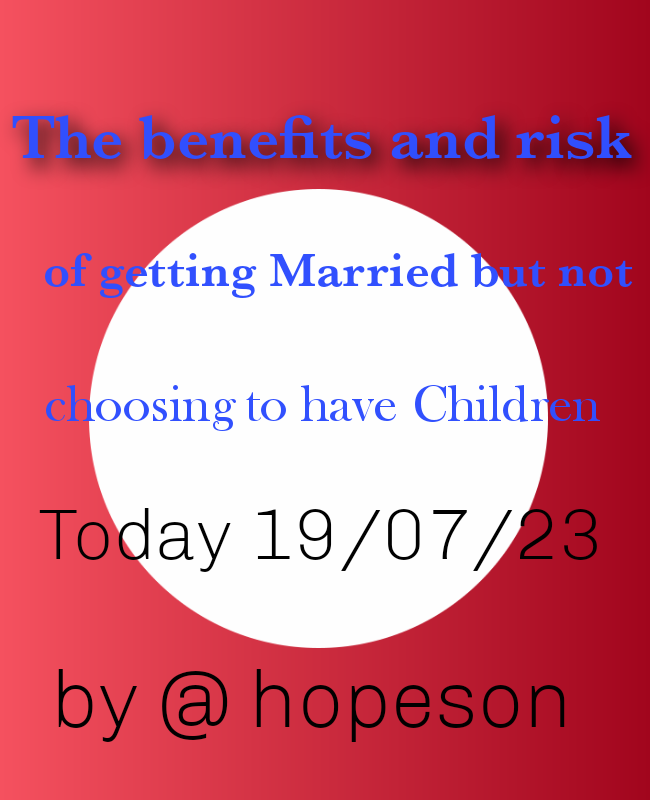
Choosing to get married but not having children is a personal decision that can have both benefits and risks. Here are some considerations:
Benefits:
Freedom and flexibility: By not having children, you have more freedom to pursue personal goals, hobbies, and careers. You can prioritize your own needs and desires without the responsibilities and time commitments that come with raising children.
Financial stability: Raising children can be expensive, and by choosing not to have children, you may have more financial resources available for other purposes. This can allow you to save for retirement, travel, invest in personal interests, or enjoy a higher standard of living.
Maintaining personal relationships: Without the demands of parenting, you may have more time and energy to invest in your relationship with your spouse. You can focus on building a strong bond, nurturing your connection, and pursuing shared interests.
Personal growth and self-fulfillment: Not having children can provide opportunities for personal growth and self-discovery. You can explore your own passions, develop your career, engage in personal development, and pursue lifelong learning.
Reduced stress and responsibility: Raising children can be emotionally and physically demanding. By not having children, you can avoid the stress and responsibilities that come with parenting, allowing you to lead a more relaxed and carefree lifestyle.
Risks:
Social and family pressure: Society often places a strong emphasis on the traditional family structure, which can lead to social and familial pressure to have children. You may face criticism or judgment from others for not conforming to societal expectations.
Regret or feelings of emptiness: While many people choose not to have children and lead fulfilling lives, some individuals may experience regret or feelings of emptiness later in life. It is important to carefully consider your own desires and values before making this decision.
Potential strain on the relationship: Not having children can influence the dynamics of a marriage. Some couples find fulfillment and happiness in their child-free lifestyle, while others may experience strain or disagreement if one partner desires children in the future.
Limited support in old age: Without children, there may be fewer family members available to provide support and care in old age. It is important to consider alternative support networks or plan for long-term care options.
Uncertain future perspectives: Your feelings and desires about having children may change over time. While you may be confident in your decision now, it's important to consider the potential for shifting priorities or changing circumstances in the future.
Ultimately, the decision to get married without having children is a deeply personal one. It is important to have open and honest discussions with your partner about your desires, expectations, and long-term goals to ensure compatibility and understanding.